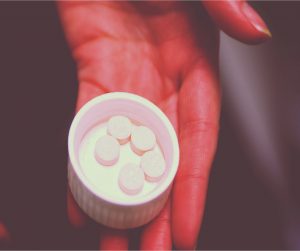Navigation:
- Suboxone Overview
- Can You Get High on Suboxone?
- Suboxone Abuse: Symptoms and Effects
- Suboxone Addiction Treatment
Suboxone Overview
 Suboxone is a prescription drug that’s designed to help people who are struggling with opioid addiction. It may be given to people who are taking oxycodone or heroin. This medication is a combination drug made of two main active ingredients: buprenorphine and naloxone. Buprenorphine is a partial opioid agonist, which means it can replace the opioid that’s being abused by the patient. But because it produces a much less intense high, they are less likely to abuse it. On the other hand, naloxone is an opioid antagonist. It is mixed in with buprenorphine to further lessen the risk of abuse. As a combination drug, suboxone is similar to methadone, and is also used in that same way. Unfortunately, there are still some people who abuse suboxone, which is what brings out the dangerous side of this otherwise helpful medication.
Suboxone is a prescription drug that’s designed to help people who are struggling with opioid addiction. It may be given to people who are taking oxycodone or heroin. This medication is a combination drug made of two main active ingredients: buprenorphine and naloxone. Buprenorphine is a partial opioid agonist, which means it can replace the opioid that’s being abused by the patient. But because it produces a much less intense high, they are less likely to abuse it. On the other hand, naloxone is an opioid antagonist. It is mixed in with buprenorphine to further lessen the risk of abuse. As a combination drug, suboxone is similar to methadone, and is also used in that same way. Unfortunately, there are still some people who abuse suboxone, which is what brings out the dangerous side of this otherwise helpful medication.
Can You Get High on Suboxone?
The answer is yes: especially if you take it in large doses. Of course, this won’t happen if you are strictly following your doctor’s prescription. But a person who is abusing suboxone will keep doing so because of how good it makes them feel. People in addiction treatment programs will try to substitute suboxone for their usual drug of choice. Suboxone is even popular among inmates who have it smuggled into their prison cells by embedding suboxone strips into coloring books and other similar objects.Suboxone Abuse: Symptoms and Effects
Like other opioids, suboxone can still be abused. Although the risk of addiction is lower, taking this in large doses can lead to the same thing. In fact, it is even considered a lower-risk alternative to methadone! But addicted individuals might crave opioids and use suboxone as their substitute. Therefore, they could still get addicted. If a person gets addicted to suboxone, there are certain symptoms you can look out for. They may appear sedated, drowsy, or unable to feel pain. They may experience nausea, vomiting, constipation, slowed breathing, and impaired cognition. Like any addicted person, they will exhibit a euphoric disposition, for seemingly no reason. And of course, someone who is addicted to suboxone will compulsively seek out the drug. They won’t follow any schedule for their suboxone intake, and they will take large doses within a short period of time. Because suboxone is less potent, they need to take more. Other symptoms of suboxone addiction are the following: irritability, anxiety, mood swings, depression, intestinal problems, flu-like symptoms, aches, pains, tremors, and in rare cases, hallucinations. It is also possible to overdose on suboxone. It can stop a person’s breathing, leading to brain damage or death. While again, this is not as likely as when you are abusing any other opioid, but it is a possibility for those who take the drug recreationally, especially those who inject the drug directly into their bloodstream by dissolving it in water. [maxbutton id="3" ]Suboxone Addiction Treatment
How do you treat addiction when you’re addicted to the cure? Well, the reason for addiction is misuse of the cure. So the best way to deal with it is to make sure that it is being used as intended. Inpatient treatment may work well in this situation, as medical professionals will be able to monitor the patient’s intake and help keep them on track. This type of medical detox also works best when used alongside behavioural therapy and methods such as counselling. Remember: addiction affects more than a person’s body. It affects their mind, their emotions, and their relationships with other people. You have to tackle all those problems at once in order to get to the root cause of addiction. It’s a long and challenging process, but it’s one worth accomplishing. Look for an addiction treatment facility and recovery houses near you today!
Can You Get High On Suboxone? is republished from RehabNear.me
from
https://www.rehabnear.me/high-on-suboxone/

No comments:
Post a Comment